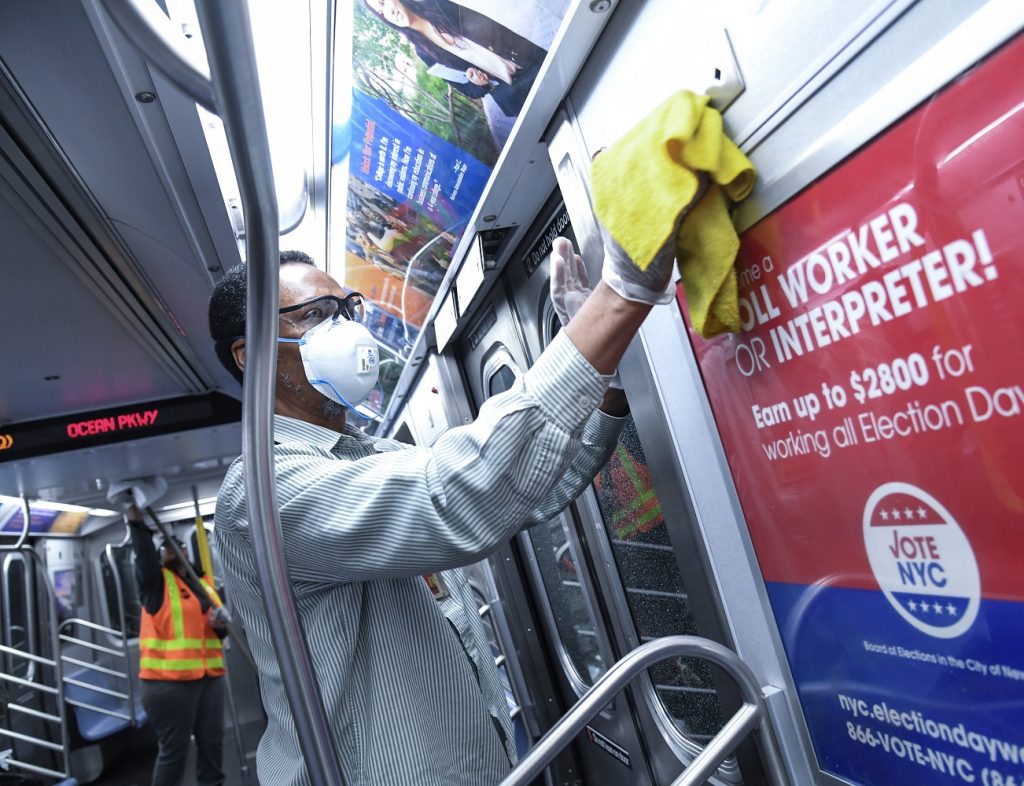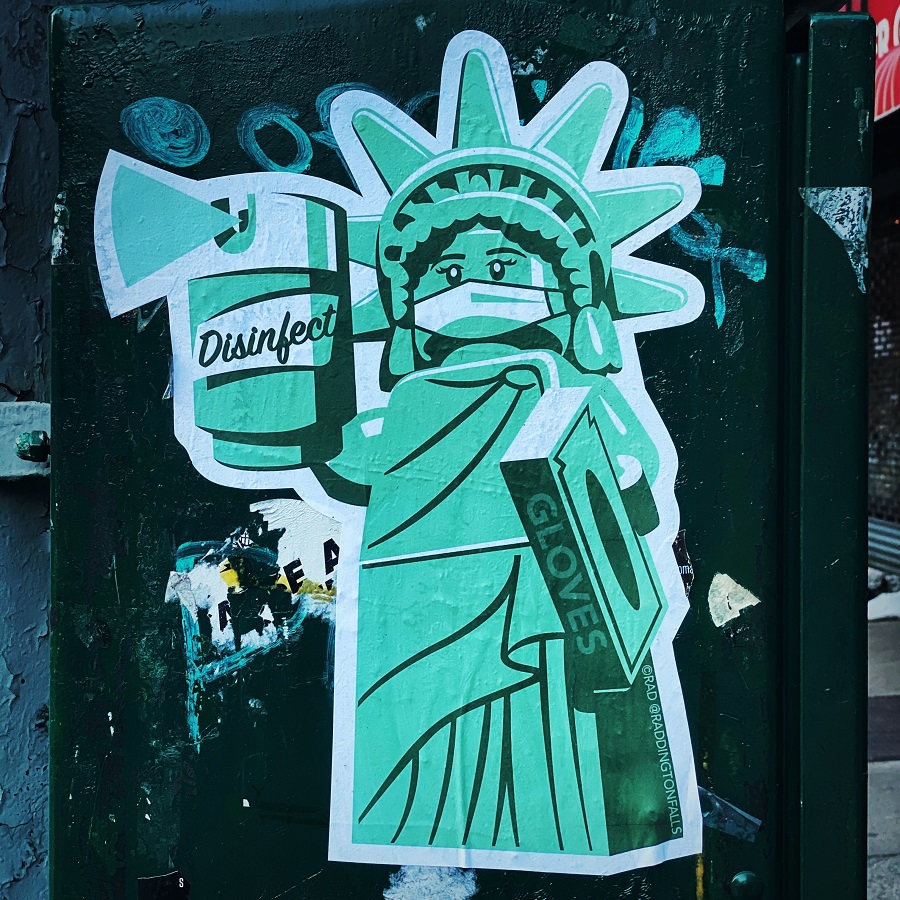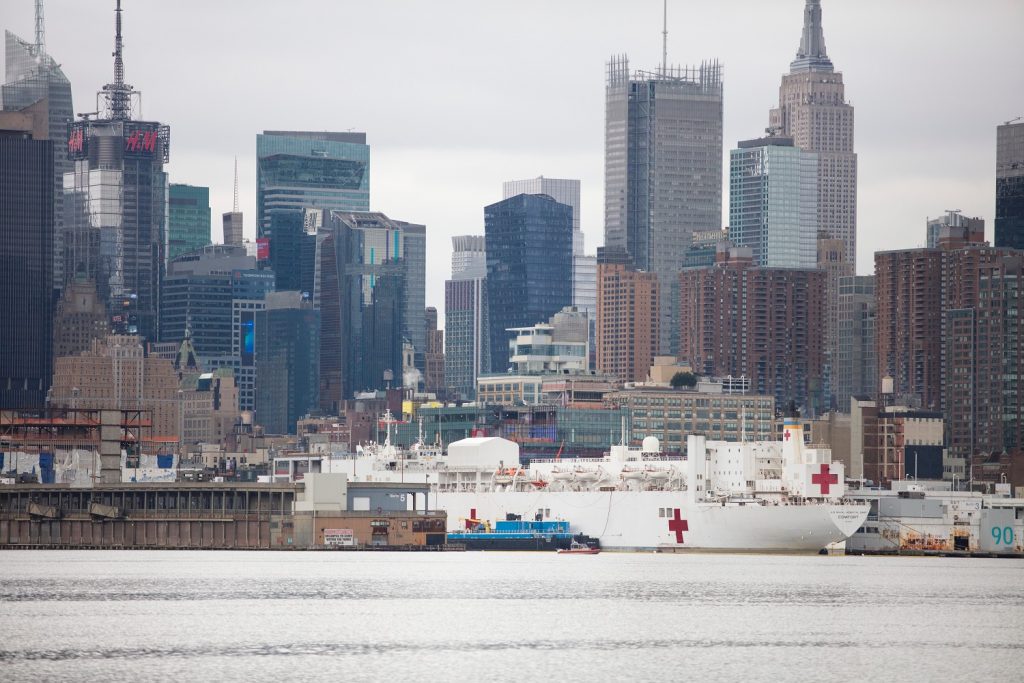Tiina Aleman Iannoti, a descendant of Estonians living in Jersey City, NJ, writes about the coronavirus crisis in New York City, describing the horror of refrigeration trucks outside the city hospitals for the bodies of those who have died from the novel coronavirus; but there has also been much kindness and generosity during this crisis.
It started the way crises often do. Slowly and not so apparently. The first reports of COVID-19 were from Wuhan, China. And New Yorkers, reading about it, nodded and noted that there was a virus happening all the way over there.
Then, when reports came that it was in Seattle, New Yorkers assured themselves that it was all the way on the other side of the country. It wasn’t until it hit home that New Yorkers began to take notice, but even then with a lack of any real urgency. That response was abetted by the uninformed statements of president Donald Trump and New York’s mayor Bill DeBlasio.
As the infection rate and death rate grew, DeBlasio rather slowly began to take action. New York is his town. Shutting it down means an economic downturn of monumental proportions. But eventually, he saw reason. Schools were shut down. Bars and restaurants were shut down. Theatres, museums, houses of worship, all venues that were deemed non-essential, were shut down. Thousands of employees were laid off and left without their weekly paycheck or health insurance. Those who still had jobs were advised to work from home if at all possible.

Citizens were told to maintain a physical distance of six feet from one another and all group gatherings were banned. As the infection rate rose, self-isolation became the order of the day. Meaning, stay inside at all times and don’t have physical contact with anyone else. This in a city with a population of over eight million people. Where commuting on the subway means not only standing near another person, but often up against another person. And no one really likes that, but it’s taken for granted.
People scared in a way that is unusual for New Yorkers
Suddenly, everyone starts to look like a virus carrier and people are scared in a way that is unusual for New Yorkers, who are usually an intrepid bunch. And to even use the term New Yorkers feels inadequate because New York is infinitely diverse in terms of ethnicities and cultures and can’t be reduced to one thing.
The city that never sleeps is suddenly almost silent. I have been in self-isolation now for about three weeks and I am thankful that it is an option. Writing, translating and editing require little human contact. I do miss all the usual things I took for granted as a New Yorker. Having dinner out. Seeing a play. Visiting a gallery. Buying a book. But I also know that those are minor issues.

The great concern now is stopping the spread of this virus. It requires a group effort. And sadly, there are still those who don’t take it seriously. Who still go out to the parks in groups. Who still gather socially as if it were just another day. If it were just their lives they were playing with I would say it’s their choice, but they can carry the virus with no symptoms for weeks and can infect others. I’ve never been a fan of martial law, but this could be the exception to the rule.
Kindness and generosity during this crisis
It horrifies me that there are refrigeration trucks outside of city hospitals to hold the bodies of those who have died from the virus because there isn’t enough room in the morgues and that there aren’t enough ventilators to save the lives of those who are sick with the virus and that health-care workers don’t have proper protective gear and equipment and they themselves are getting sick and dying.
And it saddens me that so much talk on the news is about how this is hurting the stock market and that the government finds funds to bolster the economy, but is stingy with funds to help save the lives of the inflicted.
It’s not all bad, of course. There has also been much kindness and generosity during this crisis. People giving more generously to the homeless, museums and libraries offering their works virtually and for free to the public, educators offering their skills online to students. I have no real sense of time in terms of when this will be over, but I believe that, until then, New Yorkers will rally and keep strong for themselves and each other.
Cover: USNS Comfort, a Mercy-class hospital ship of the United States Navy, docked in New York City. Since 30 March, the ship has been stationed in New York City to help combat the city’s coronavirus pandemic by relieving non-coronavirus stress from hospitals. Photo by Daniel Lee/Unsplash.

